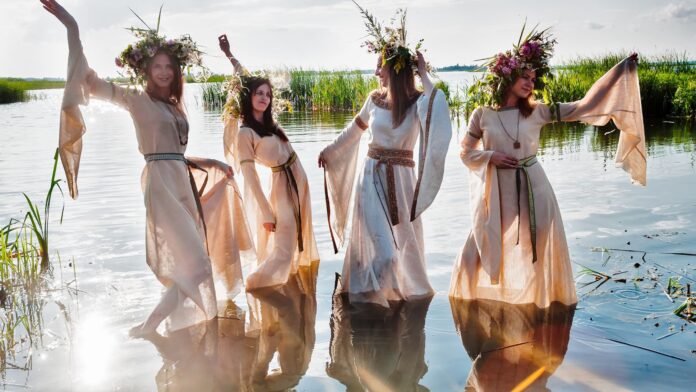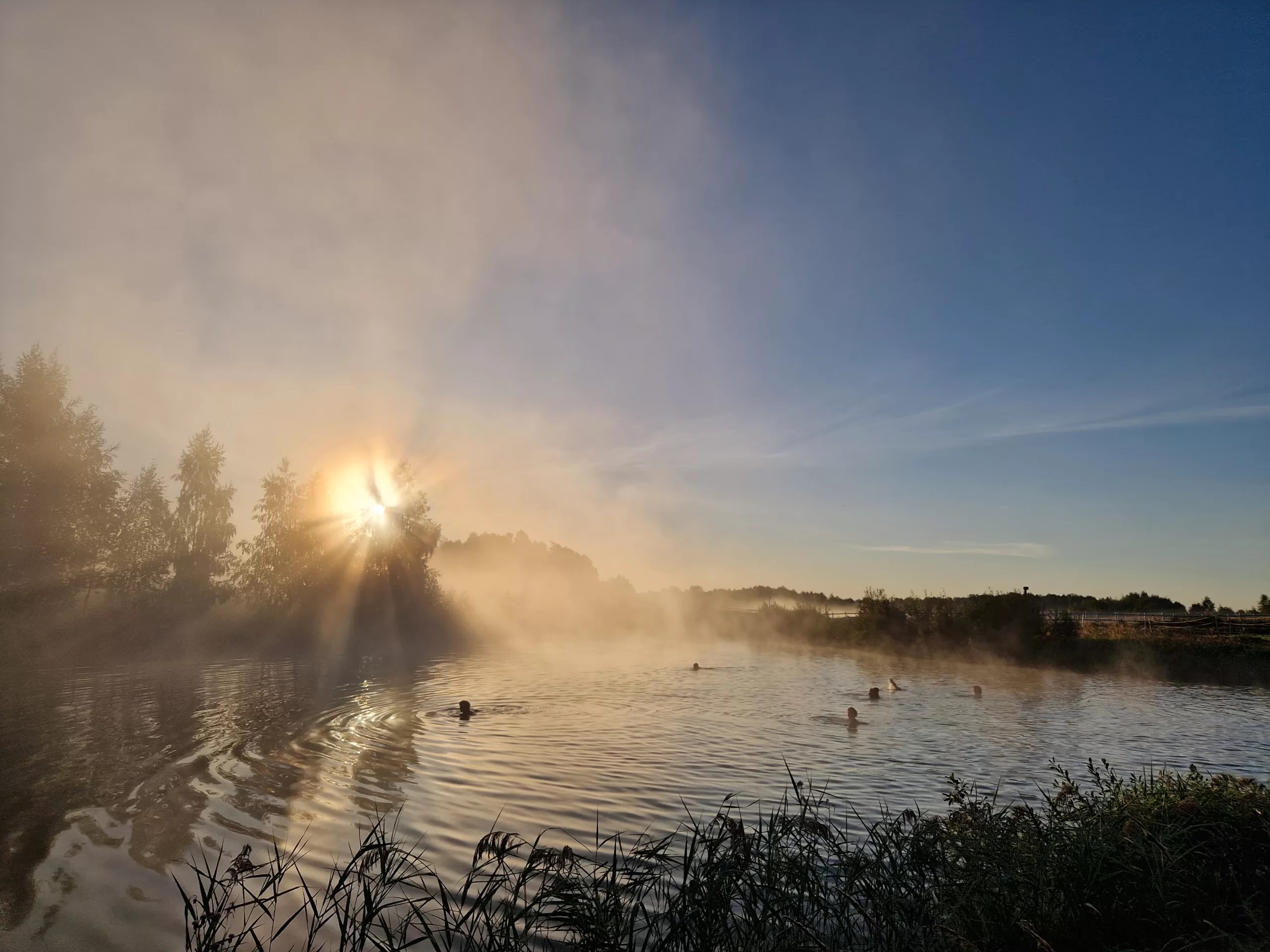
In Lithuania, there are proponents of healthy living who belong to an association called www.sveikuoliai.lt. The group espouses ancient holistic practices for good health, offers courses and retreats for detoxification, re-energizing and rest, as well as reviving health-based ancient rituals. On March 24 in Dubingiai, in the lake district of eastern Lithuania, an event called “Fairy Bathing” was organized as a rite to welcome spring, resurrecting an old pagan custom.
To celebrate the spring equinox and the return of storks on March 25, people gathered at Asveja Park to sing songs and bathe in the icy waters of Lake Asveja.
In ancient times, spring was welcomed and nature was “awakened” with games, swinging and somersaults, touching or “hugging” the earth with their bodies to call upon grass snakes (žalčiai), to waken. In pagan times grass snakes symbolized the god of the hearth, of our forefathers, of wellbeing, health and fertility. The grass snake was known as the beneficial spirit of the home, its protector and healer.
 Written sources explain that the spring-welcoming ritual on this day was performed by girls who would run through fields toward the east to welcome the rising sun, and then return home to “announce” the arrival of spring, dancing ritual dances and clapping.
Written sources explain that the spring-welcoming ritual on this day was performed by girls who would run through fields toward the east to welcome the rising sun, and then return home to “announce” the arrival of spring, dancing ritual dances and clapping.
Bathing in still-cold lakes was also a celebration of the storks’ return. Ancient Lithuanians thought storks to be god’s messenger, having mythical powers related to fire and heaven. Anyone harming storks would suffer the wrath of the god Thunder: their homes would burn or be swept away by storm. “Storking” (gandravimas) was a time for visiting neighbours, walking slowly, imitating the movements of storks. Both the first thunderclap and the first stork were certain signs of spring. Special bread and buns were baked for the occasion, called “stork bread” (gandro duonytė).
Because this year the event fell on Palm Sunday weekend, part of the dance ritual included tapping each other with cedar or budding birch branches, a ritual still performed in families in the early 20th century on Palm Sunday morning. This was meant to transfer the life-giving power of the branches to one another.
At the event in Dubingiai, a special tribute was made to three local fairies by singing a round that is unique to that area. A short video of the event, narrated in Lithuanian is available online at https://www.youtube.com/watch?v=jHB41iSer8U.



























